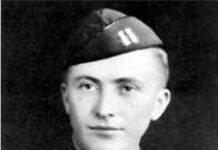TRADITION:
A belief or behavior passed down within a group or society with symbolic meaning or special significance with origins in the past.
Traditions can persist and evolve for thousands of years—the word tradition itself derives from the Latin tradere meaning to transmit.
The song “White Christmas” is a tradition. Written in 1942 by Irving Berlin, it is listed in the Guinness Book of World Records as the best-selling single of all time.
Shelden Harnick wrote the lyrics sung by Tevye in Fiddler on the Roof, the story of a Jewish family in Imperial Russia that believed in tradition:
And who has the right, as master of the house,
To have the final word at home?
The Papa, the Papa! Tradition.
Who must raise the family and run the home,
So Papa’s free to read the holy book?
The Mama, the Mama! Tradition!
Traditions are important, they’re memorable, they make a celebration important, they pass on values. They teach love and respect and honor and special home-made traditions that keep it all alive.
Two Families
I learned of two families with a very special tradition that started when the children were very young, some not yet even born. It is a tradition these families have kept alive for more than two decades. Now they have passed on to the spouses and friends of their family as well as the next generation.
It’s a tradition that started at NWS Earle, the Naval installation that sprawls across five different towns in Monmouth County. Earle has seen Marines and Sailors, officers and enlisted, spend time here, either as visitors on ships loading or unloading the powers of war as well as those stationed here, their families living in their own community in base housing.
It was a tradition for the civilian arm of the Navy personnel to have festive Christmas celebrations each year, celebrations that included the children dropping letters to Santa Claus in special mailboxes on base, sure they would get a response from the jolly bearded gentleman.
And they did.
Every year.
Families came and families went.
Navy & Marines
One time in particular, there were two families who were stationed there at the same time, one a Marine family, one a Navy family. Both loved the traditions of Christmas and loved the ones celebrated at Earle. They loved them so much, in fact, that when they both moved on to accept other orders and continue to defend and protect the nation, they decided they never wanted the tradition of Santa letters to die.
For the next many years, children in both families, or their parents, continued annual letters to Santa regardless of where their military members were stationed. Santa loved the letters, loved keeping up with the families’ growth, learning more about the different bases where they were stationed, the heart breaks and happiness that life in the military brought, the joys of family. And always the tradition.
Expanded Tradition
At least one of the families has expanded on that tradition of writing to Santa and receiving his response. They saved the letters. And over the years, they have started another tradition. On Christmas Eve, the family gathers around the tree or the Manger scene, pulls out that year’s letters as well as some from previous years, and re-reads all that Santa has written. The youngsters of yesteryear laugh and remember the past, they wonder where Santa is and how he still knows where they live and what they are up to. They don’t really care, though. They just love the tradition.
Tradition. It brings families together. Helps people laugh over sad times, reminds them of things of the past, hopes for the future. Provides a stability, a family that stays together and passes on its own values.
“The traditional ways and rituals of all of Earth’s peoples are kept in containers of poetry, song, and story. It is how we know who we are, where we are coming from and who we are becoming.”
A love for tradition has never weakened a nation, indeed it has strengthened nations in their hour of peril.
Sir Winston Churchill
Is this the year your family should start its own new Christmas tradition?



